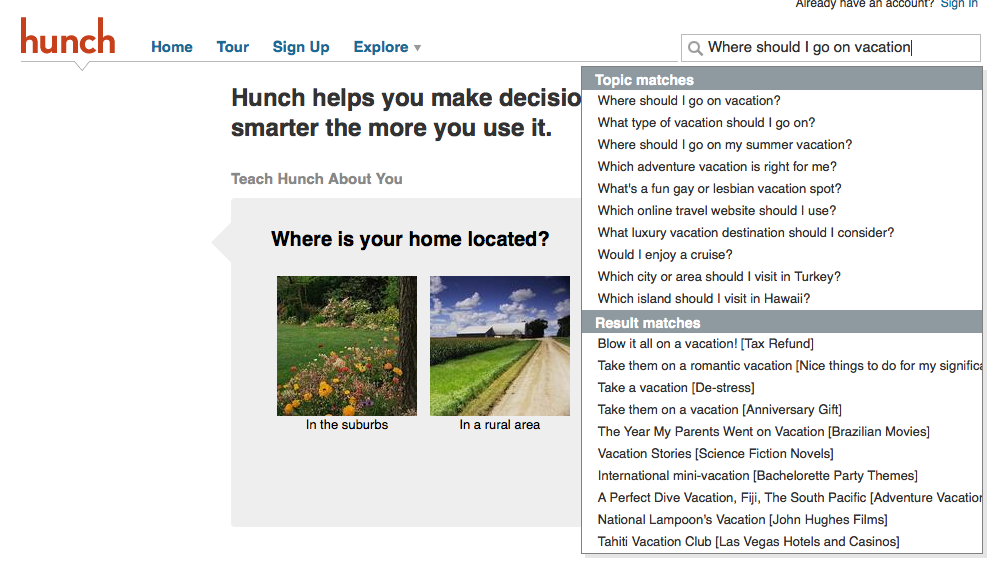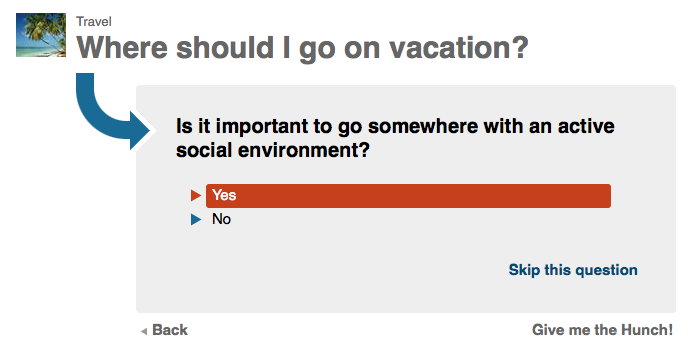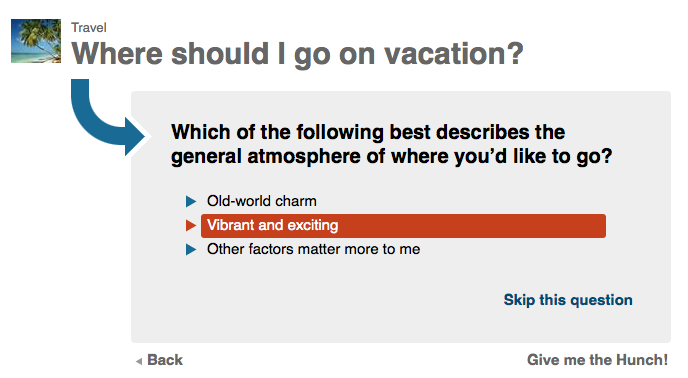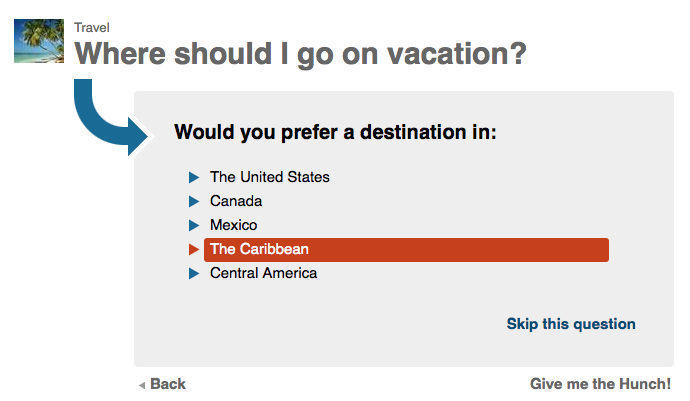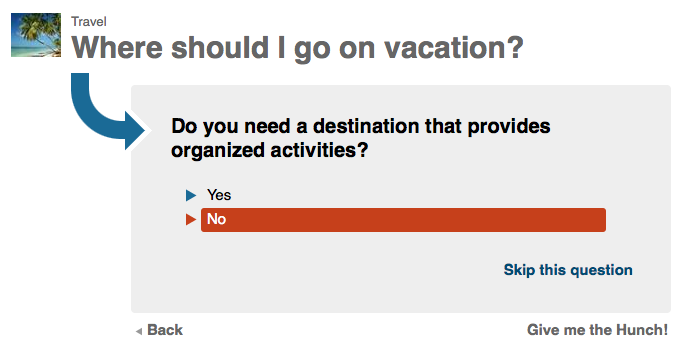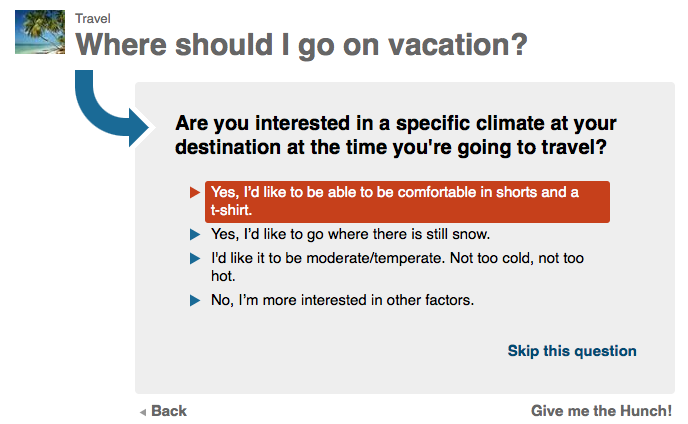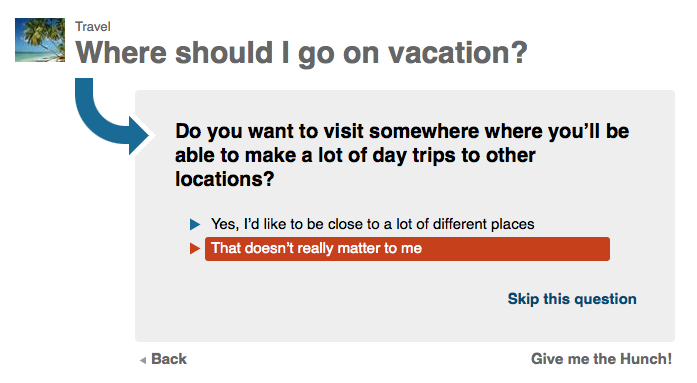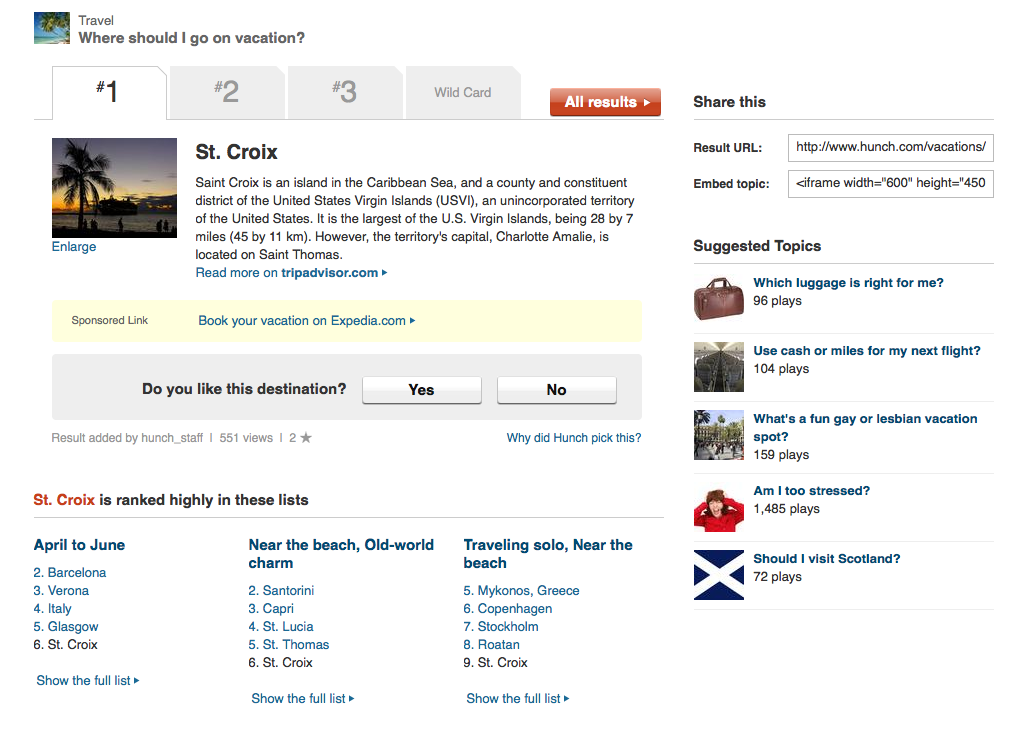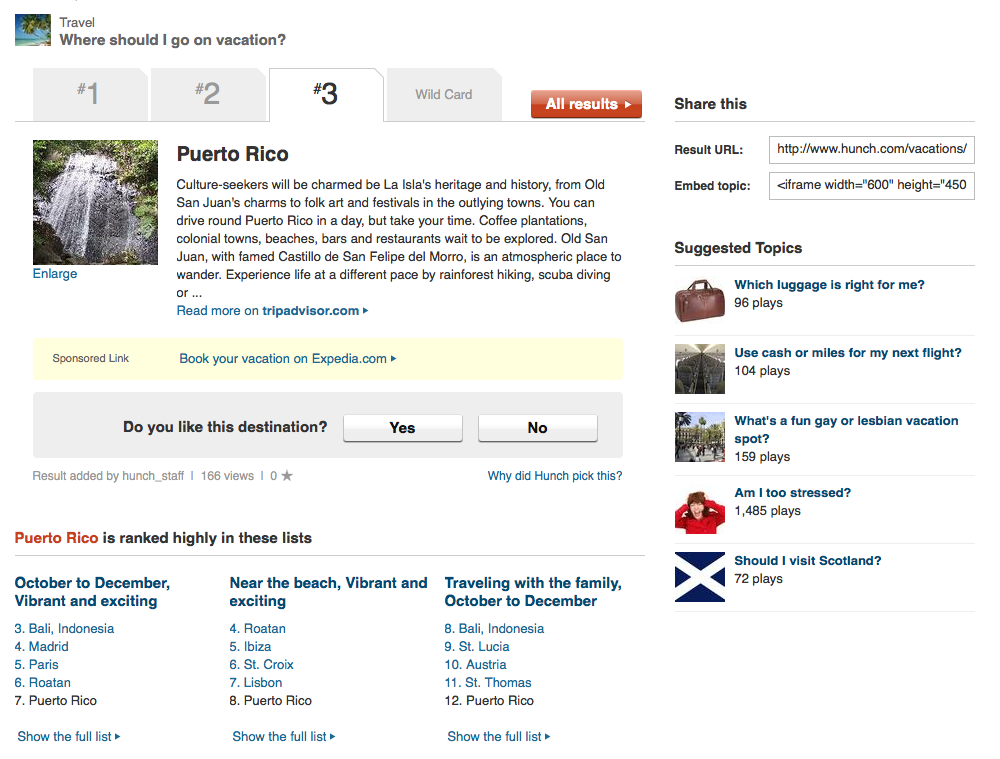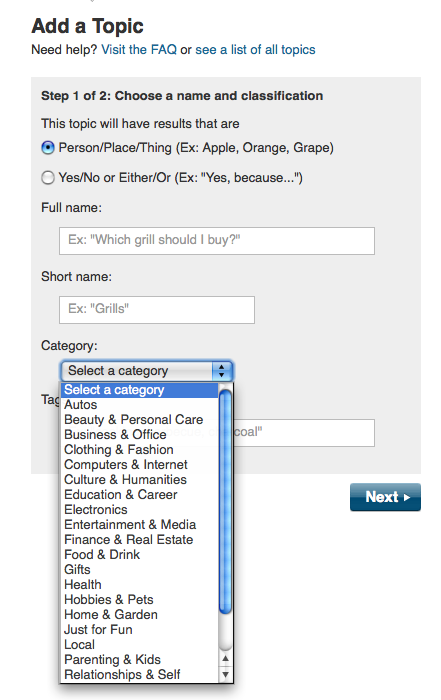Hunch: Your “Personal Decision Maker”
Hunch is not a “search engine” insists Flickr co-founder Caterina Fake, one of the people behind the new site. But you’ll probably start seeing it show up in (Google) search results, just like Wikipedia or Yahoo Answers. And in some ways it’s like a mix of both of those concepts, as Matt McGee discusses in […]
Hunch is not a “search engine” insists Flickr co-founder Caterina Fake, one of the people behind the new site. But you’ll probably start seeing it show up in (Google) search results, just like Wikipedia or Yahoo Answers. And in some ways it’s like a mix of both of those concepts, as Matt McGee discusses in his companion piece on Hunch.
Danny Sullivan, Matt McGee and I spoke with Fake on Friday about Hunch, how it worked and many of the ideas behind it. At the end of the call I asked Fake how she would succinctly describe Hunch. She brought up the “decision engine” concept, which was abandoned when Bing and its branding were discovered. Far from upset she was grateful to Microsoft for popularizing the concept with a mega ad campaign. We also talked about a range of other terms and concepts to describe Hunch, none of which were exactly succinct.
But Hunch is best experienced rather than described in the abstract. It’s a tool or process that starts with a need or question. As mentioned, Fake expects most people to arrive at Hunch through links in search results that resemble the query or question the user is asking:
- Which women’s walking shoe should I buy?
- Should I buy an iPhone 3G S?
- How should I prep for the GMAT?
- Which cheese would I enjoy?
- Should I get an MBA?
- Should I buy or lease a car?
- How can I help my child improve at reading?
From that initial question a user is taken through a decision tree that at each step asks a question. Each answer provided may lead down a different path. Users can go back or skip questions during the process. At the end Hunch offers a range of options or suggestions. Currently there are about 2,400 of these topics (questions/answers) in Hunch’s database,
To get a better sense of how Hunch works, let’s walk through a concrete example. Say I’m trying to figure out where to go on vacation:
I discover that there’s already a topic on my issue or interest. Now I proceed to respond to a range of questions (up to a maximum of 10; different topics may have fewer or more questions):
When I get to the end, I’m presented with a screen that looks like this and shows me several options:
After testing a range of different topics and questions I found the results or answers to be uneven. But the process is very interesting and useful, forcing you to consider priorities or criteria at each stage. Caterina Fake told us that she saw Hunch getting better over time. Matt McGee quotes her in his article saying, “It might take five years for Hunch to reach maturity. Right now, it’s like Wikipedia circa 2002.” As more people contribute and become involved questions will become more refined and improve.
What about multiple topics on the same issue? What about stronger and weaker versions of the same question? What about spam? Fake had elaborate answers for each of these issues and had clearly thought them through. For example, as similar topics and results are created there are various mechanisms to bubble up the best answers such as voting:
Fake expects most users of Hunch to simply be consumers rather than content creators. She said she was surprised by how many people created topics during the site’s beta period. As with Wikipedia anyone can start a topic and multiple people can edit topics to improve or refine questions. Users walk through a process, with a wizard, to create topics and related questions. And I can start a topic that someone else might finish or create an imperfect version of a topic that might be improved by someone else later:
All topics and questions must be reviewed and approved by Hunch before they’re released into the wild. As you might expect there’s a Hunch community and you can create a profile on the site. Yet you don’t have to register or log in to use the site. Fake says that it offers a somewhat better experience to those who do, however. And by definition the results are personalized.
Fake told us that she thought Hunch might not have been possible before Wikipedia, Yahoo Answers, Facebook and Twitter and the online culture those efforts have helped to develop and promote. Yet it’s a different animal than any of those sites (or search) — even Yahoo Answers, which it perhaps most directly resembles and which Fake worked on while she was at Yahoo. While Hunch isn’t a search engine, it clearly overlaps with many conventional search use cases as my vacation example suggests. In some situations, it potentially addresses a different stage of the decision-making process or “the funnel” to put it in marketing speak.
I said to Fake during our call last week that ultimately she needed to have a slogan that could go on the back of a t-shirt. Punning Flickr I suggested, “Personal Decision Makr.” To which she replied, “I want my vowels back.”
Contributing authors are invited to create content for Search Engine Land and are chosen for their expertise and contribution to the search community. Our contributors work under the oversight of the editorial staff and contributions are checked for quality and relevance to our readers. The opinions they express are their own.
Related stories
New on Search Engine Land
